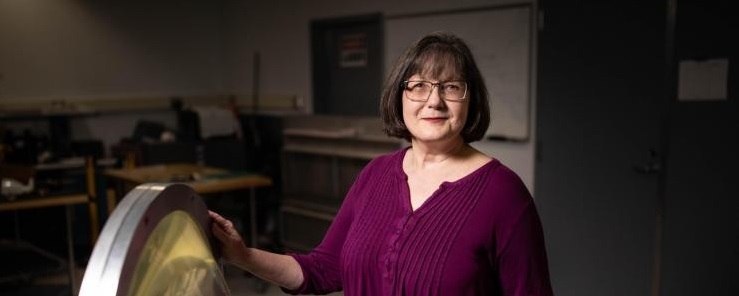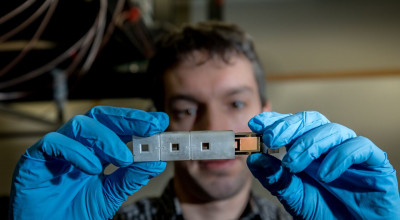
It has been nearly three decades since Lynn Fountain joined the Georgia Tech Research Institute (GTRI) as a researcher, not long after earning her doctorate in physics at the Georgia Institute of Technology (Georgia Tech).
This month, she was named a winner of the Woman of the Year Award in Nonprofit Educational Institutions by the organization Women In Technology, an Atlanta group that encourages women and girls to pursue career opportunities in science, technology, engineering, arts, and math.
The Woman of the Year Award recognizes local women for their accomplishments in the business and technology fields and leadership in the community.
Fountain, who now serves as a principal research scientist and division chief of the Signals and System Division for the Georgia Tech Research Institute’s Advanced Concepts Laboratory (ACL), was nominated for the award both for her accomplishments as a researcher and as a mentor.
“This is a great recognition for Lynn, who has been supporting and mentoring young researchers in technical fields for nearly thirty years,” said Doug Denison, ACL’s director. “As a leader at GTRI, Lynn continues to promote STEM education and opportunities for women in science and engineering. She is highly deserving of this award.”
Fountain earned bachelor’s and master’s degrees in physics and electrical engineering respectively from Tennessee Technological University before beginning her doctoral work at Georgia Tech. Now, she leads a team of 30 people in GTRI’s ACL, which develops tailored solutions for a broad range of national security challenges through application of physics- and effects-based modeling to realizable systems, augmented with prototype development and testing.
Through the years, Fountain has led projects involving electromagnetic scattering measurements and simulations, antenna design, radar cross-section reduction, and intelligence analysis.
Fountain also worked for five years for the Georgia Tech Center for Education Integrating Science, Mathematics, and Computing (CEISMC), which coordinates Georgia Tech’s K-12 STEM outreach. That work included establishing programs to encourage teachers to use more hands-on activities in science classrooms and efforts to encourage more girls and women to pursue STEM careers.
“It was an honor to be recognized by WIT for both my technical career and for my work over the years as a mentor,” Fountain said. “I fully support WIT’s efforts to encourage girls and women to pursue careers in technology related fields. My career at Georgia Tech and GTRI have been rewarding. I’ve had the honor of pursuing interesting technical work with a great group of researchers.”





